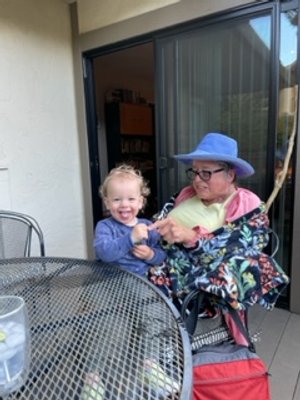It’s been another busy week. I had jury duty in Salinas, and I forgot to bring a book, which was a mistake. I sat in a room and a hallway with perhaps two hundred other people and tried not to worry about how much and how often I had to pee. Maximum boredom. At lunch I made it to a fine little taco shop and had a good meal. Nothing to drink. Then back to the courthouse where I waited some more. From eight fifteen until two in the afternoon, I waited. No one around me seemed in the mood to chat, for fear of starting to complain, I suspect. The Court staff were all very professional and and their instructions were clear. Unfortunately the process was slow. At three o’clock I was called into a courtroom with sixty other people where I answered some questions for a very experienced and affable judge, I filled out a form and was dismissed because of my past work as a criminal defense investigator.
Boring as it was I had a pretty good time watching the people around me: hispanic citizens and Vietnamese, as well as working class white folks and the occasional expensively dressed rich person. We were all there united in our boredom, united in the irritation at being jerked out of their lives to have to sit in a government building with too few bathrooms and no coffee. Several people brought their young children, thinking perhaps that this was an easy way for a get out of jail free card. I heard a very patient court employee tell one such mother that she would need to make other arrangements for her child. That she could delay her service today to make those arrangements but simply having a child did not make you ineligible. “Look at all these people here,” she said patiently, “do you think none of them have kids, or other responsibilities they should be taking care of. Jury duty is one of the few requirements of our citizenship. It’s kind of like taxes. It just is something we have to do.” The mother did not seem won over by the clerks arguments re: civic duty, but she did accept the postponement of one day and promised to be back. She didn’t yell or pull a gun, she just promised to be back.
Frankly, I was amazed at how civil the mother and the court clerk were and this civility got me thinking.
Jan teaching Arthur the Electric Finger.
The day before jury service was Mother’s Day… which I had always thought of as a fake holiday, propagated by the greeting card industry and Big Chocolate. But not so much this year. Our daughter in law’s family asked us to go to mother’s day brunch. Brunch is (I had also thought )was also a kind of fake meal propagated by the makers of hard soft boiled eggs, Hollandaise sauce, and steam tables.
But here too, I was wrong. Mother’s day this year was a feast and a unbridled festival of love: Amazing food and sincere expressions of love. There was a new born, a toddler, mothers, grand mothers and a great grand mother around our table. The pallet of the day was pastels in blue, and pink, and gratitude was apparent all around. The food was tremendous and all the women seemed more formidable than I had remembered.
The Basham, Lyons and Straley family.
We all have a million reasons not to feel connected to our fellow citizens. Politics suck, and culture is just set up for arguments. There are so many things that separate us from the criminal defendants and the squabbling people in civil litigation. But one thing is certain, every one of us who showed up for jury service, every one of us had mothers. That fact (no matter how our mother’s performed) is perhaps the greatest civilizing factors of our humanity. Mothers teach us empathy. Mothers by their very first acts of protection and love impart the meaning of the Golden Rule: Do unto others what you would have others do unto you. When we are first born Carl Jung argued that we don’t even know the difference between ourselves and our moms. The newborn for weeks after stare up at the woman’s face as they feed and think they are looking in a mirror. Looking at themselves. This surely must be the source of empathy. Mother’s teach us by example and they teach us by intention, and no matter how well they did later on, this ability to empathize allows the human race the ability to imagine generosity, to act out of kindness, and to be fierce in our convictions. I would argue that it was the influence of the maternal spirit that make it possible for a two hundred fractious Americans to sit in a government building without all our differences breaking out into violence. We all have mothers and no one loved us like our mothers. We carry that love with us every day and this love civilizes us. Fathers give us a lot as well, but what fathers bring to the table is for another day, and another festival of love and gratitude.
Here is a poem I wrote for my sister in law, Linda Straley who was exceptionally good at Citizenship as well as motherhood. I read this poem at her memorial service.



